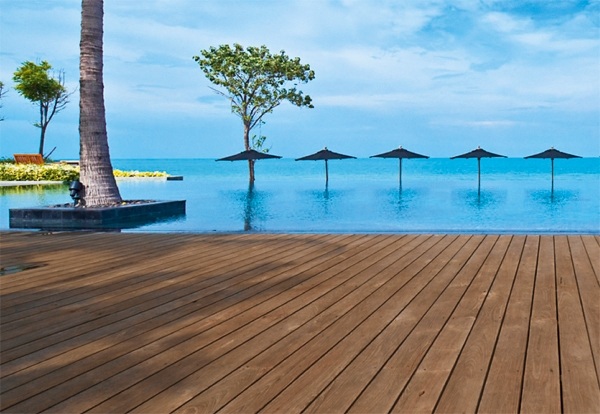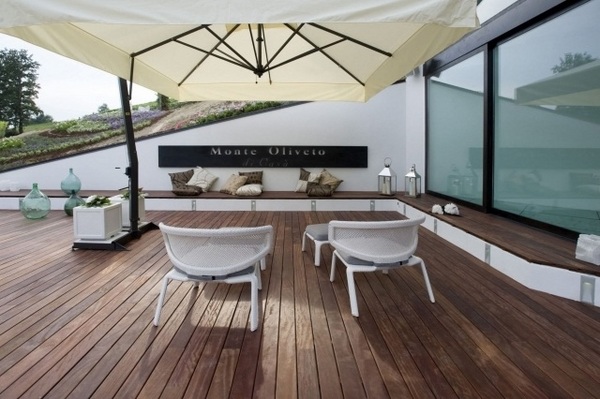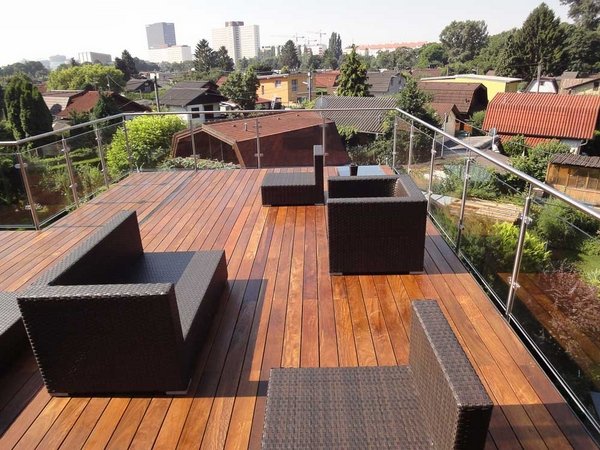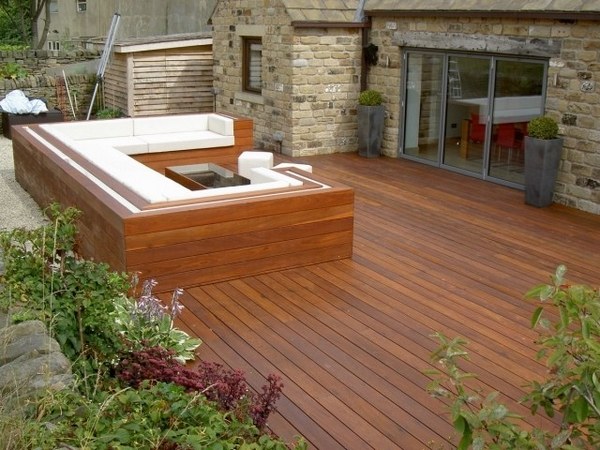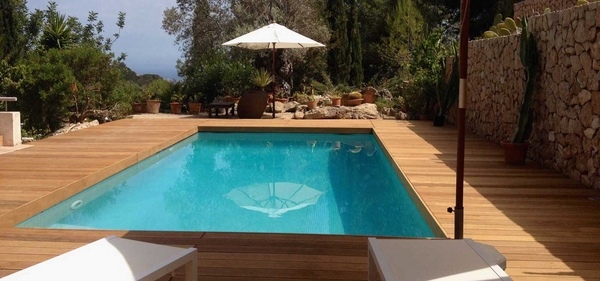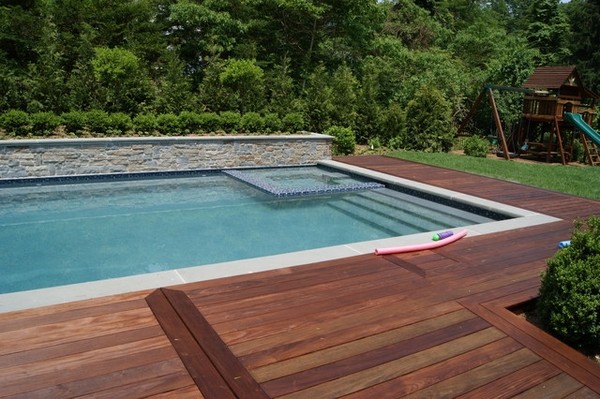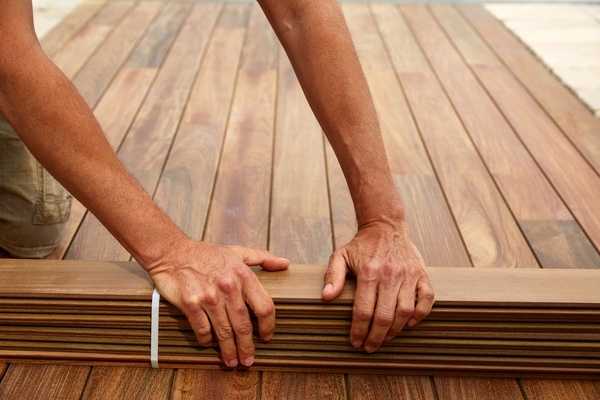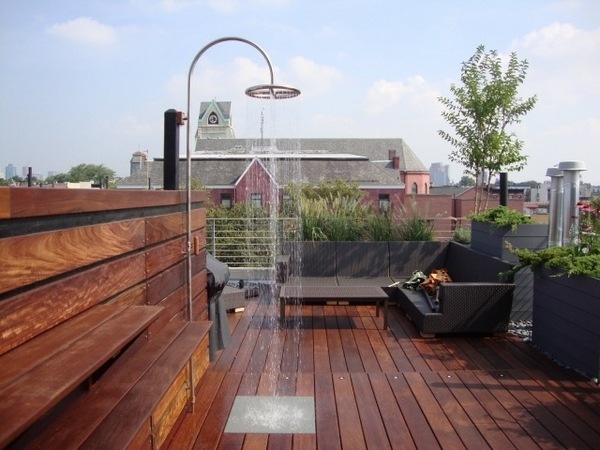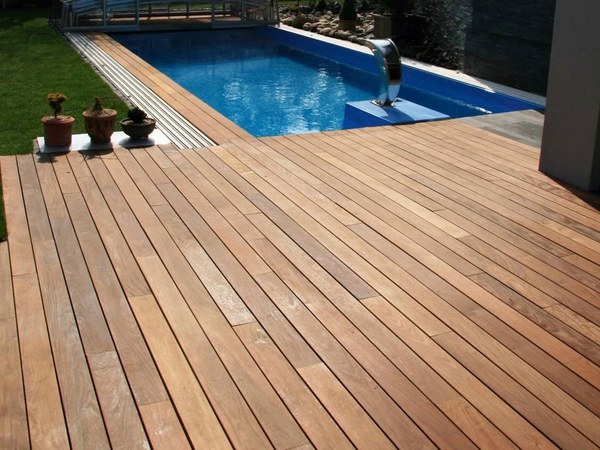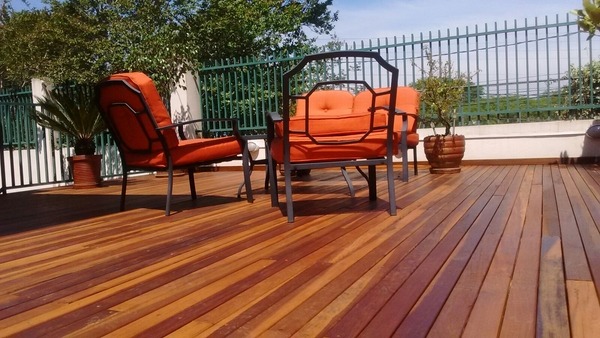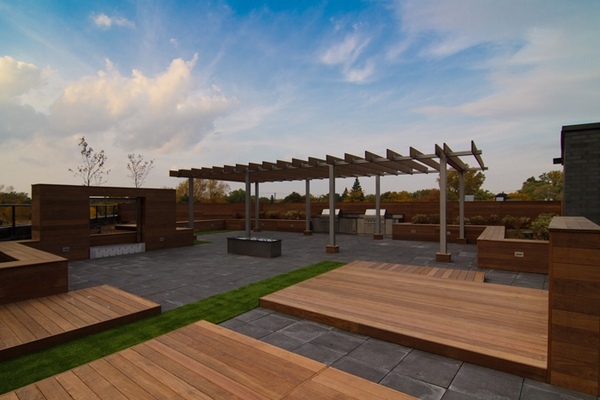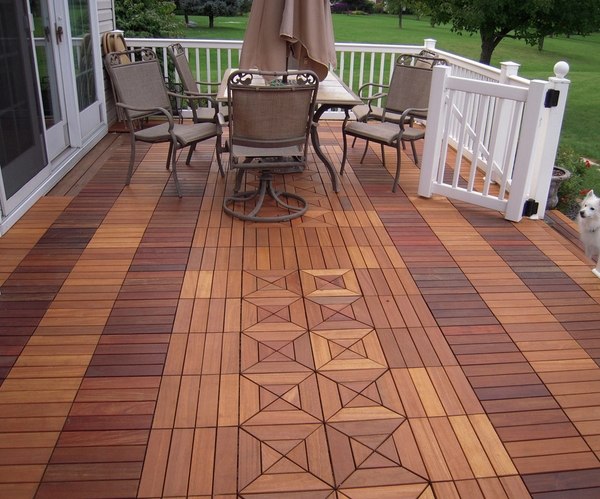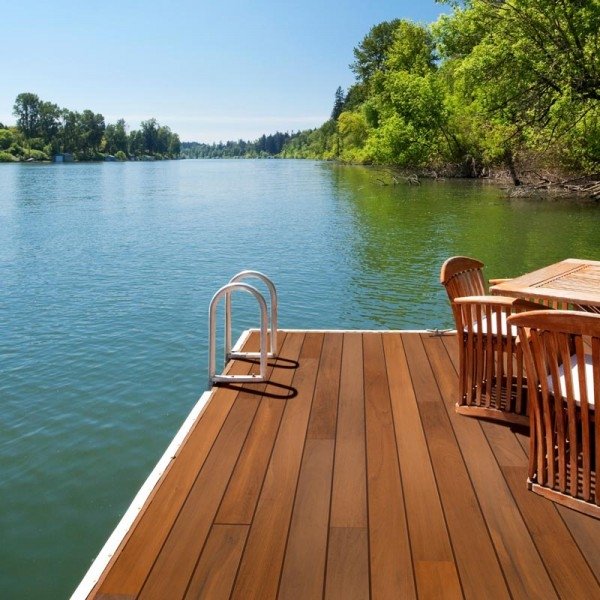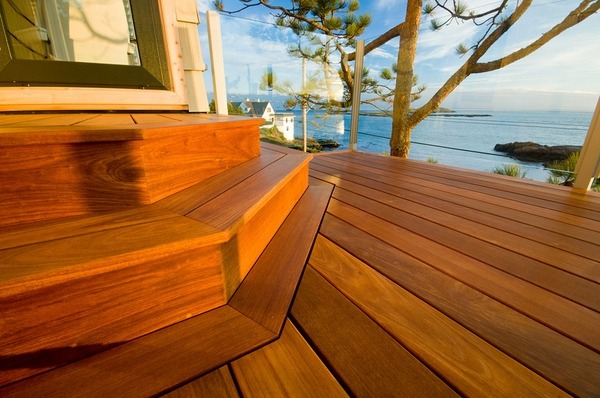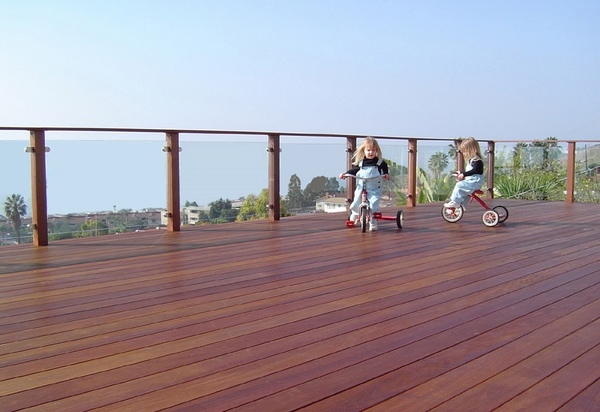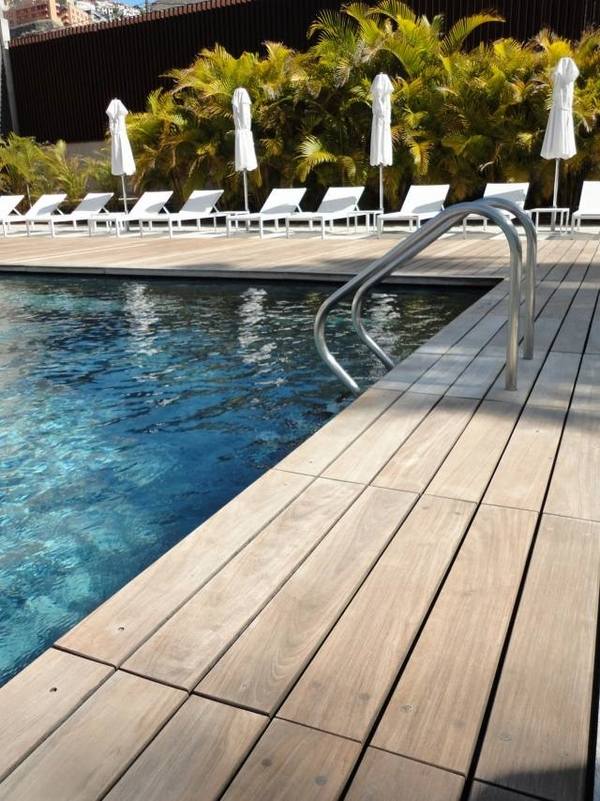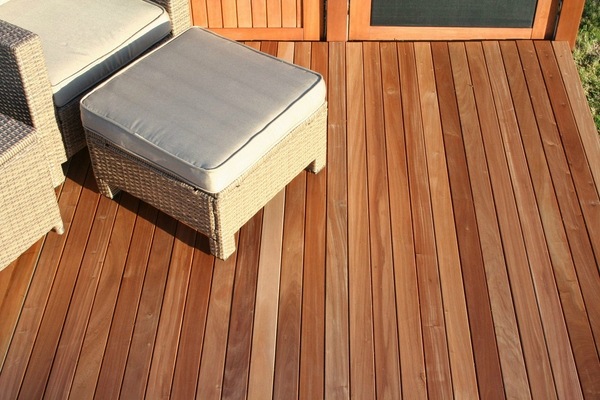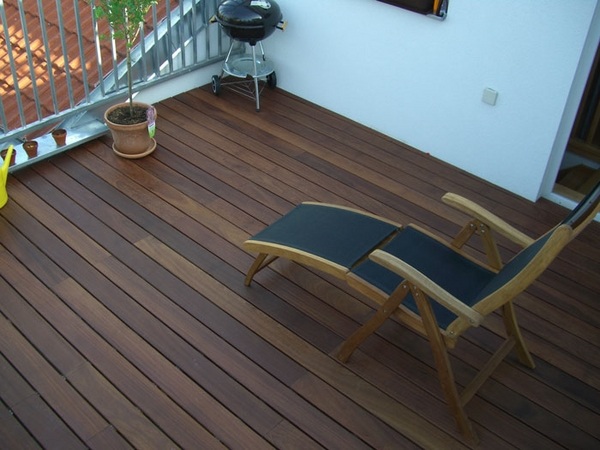Ipe decking is often used because of the properties of the wood. Ipe wood is also known under the name “Brazil nut”. We shall look at the pros and cons of that kin of deck and what are the advantages of this wood compared to other wood species.
When you choose the decking material for your outdoor area it has to meet several criteria. Of course your pool deck or patio deck should be cozy and comfortable. Natural wood is very sensitive to humidity changes, it requires a certain care and special maintenance so that the wood retains its initial appearance and qualities. Decking can be used in places where the installation of ordinary wood is not possible as it is made of the most resistant species. Ipe wood is ideal for decking. The tree grows to a height of 30m and has excellent characteristics and resistance. It an excellent solution which can be used for patio decking, pool decks, bathroom, sauna, veranda, rooftop balcony, etc.
Pros and cons of Ipe decking
Experts say that Ipe decking is next to perfect and we shall see why they are so enthusiastic about this wood. When choosing the wood for your decking you have so many options – from traditional solid wood to exotic wood species like cumaru, tigerwood, massaranduba, teak, merbau or garapa. Exotic wood species like Ipe grow in different conditions and are characterizes with strength, durability and hardness.
Ipe decking offers a number of benefits and that makes it so popular for outdoor use and landscaping. On the first place is the durability. Ipe wood is very dense and will last from 20 to 50 years depending on weather conditions. The decking will not crack, scratch, or stain easily. It offers superior slip resistance as well.
Ipe wood is resistant to rotting and splitting. The decks made of it are stable with high mechanical strength. They practically require no maintenance. Ipe wood decking does not need sealing and regular maintenance is as easy as moping and stain cleaning, if stains occur. Experts advise that the material is oiled as this will increase the capacity to repel water and UV rays and will keep the reddish-brown color of the wood.
Ipe wood is an organic product and environmentally friendly. His appearance is naturally beautiful with smooth and uniform texture which gives a shiny look. The grain of that type of wood can be wavy and straight and with a very fine texture
Ipe decks are resistant to mold and fungus, do not rot and decay and do not retain heat which is of significance for places with hot climate.
Disadvantages of Ipe decking
On the downside of Ipe decking there are several factors that you need to consider. The material is heavy due to the density of the wood. The hardness and density of it mean that the installation process requires special tools and expertise. To avoid rust and black oxidation stains it is recommended that you use stainless steel screws and fasteners which will increase the installation costs. Regular oiling is required, especially if you would like to keep the color of the wood. Ipe decking can be sanded and oiled if it loses the initial appearance.
Last but not least – Ipe decking price is perhaps the biggest downside. It is one of the most expensive decking options due to the high demand and the popularity.

